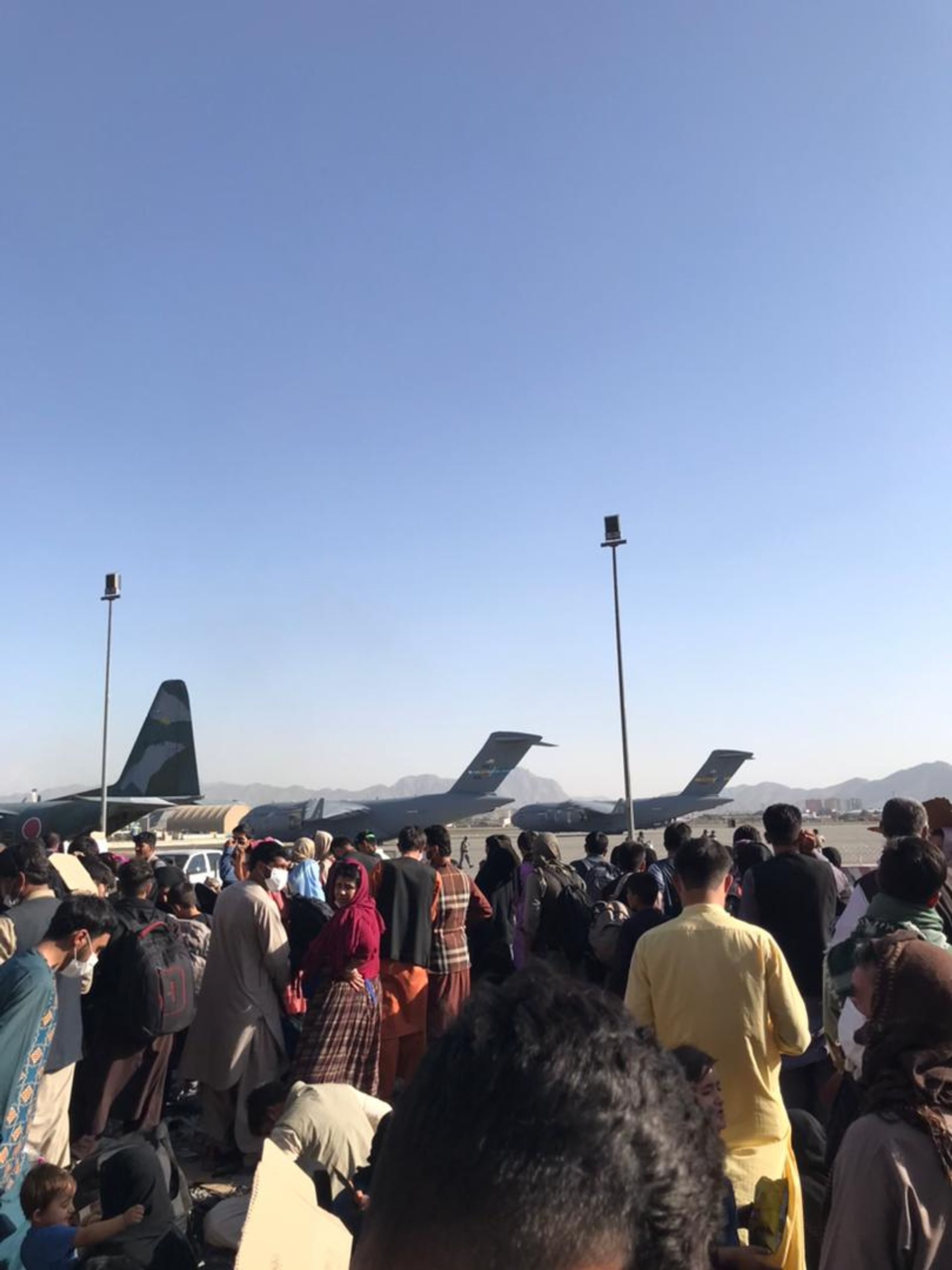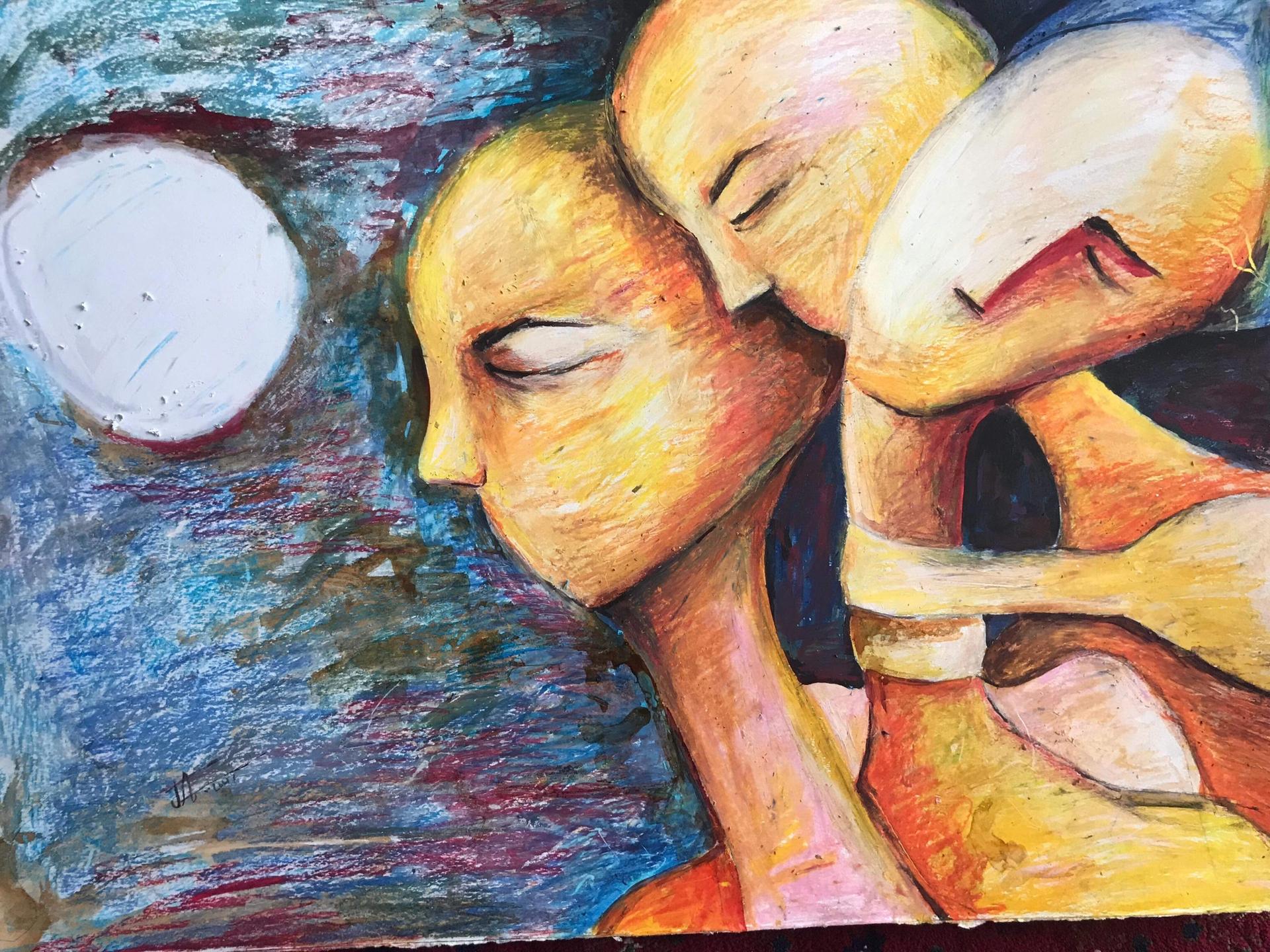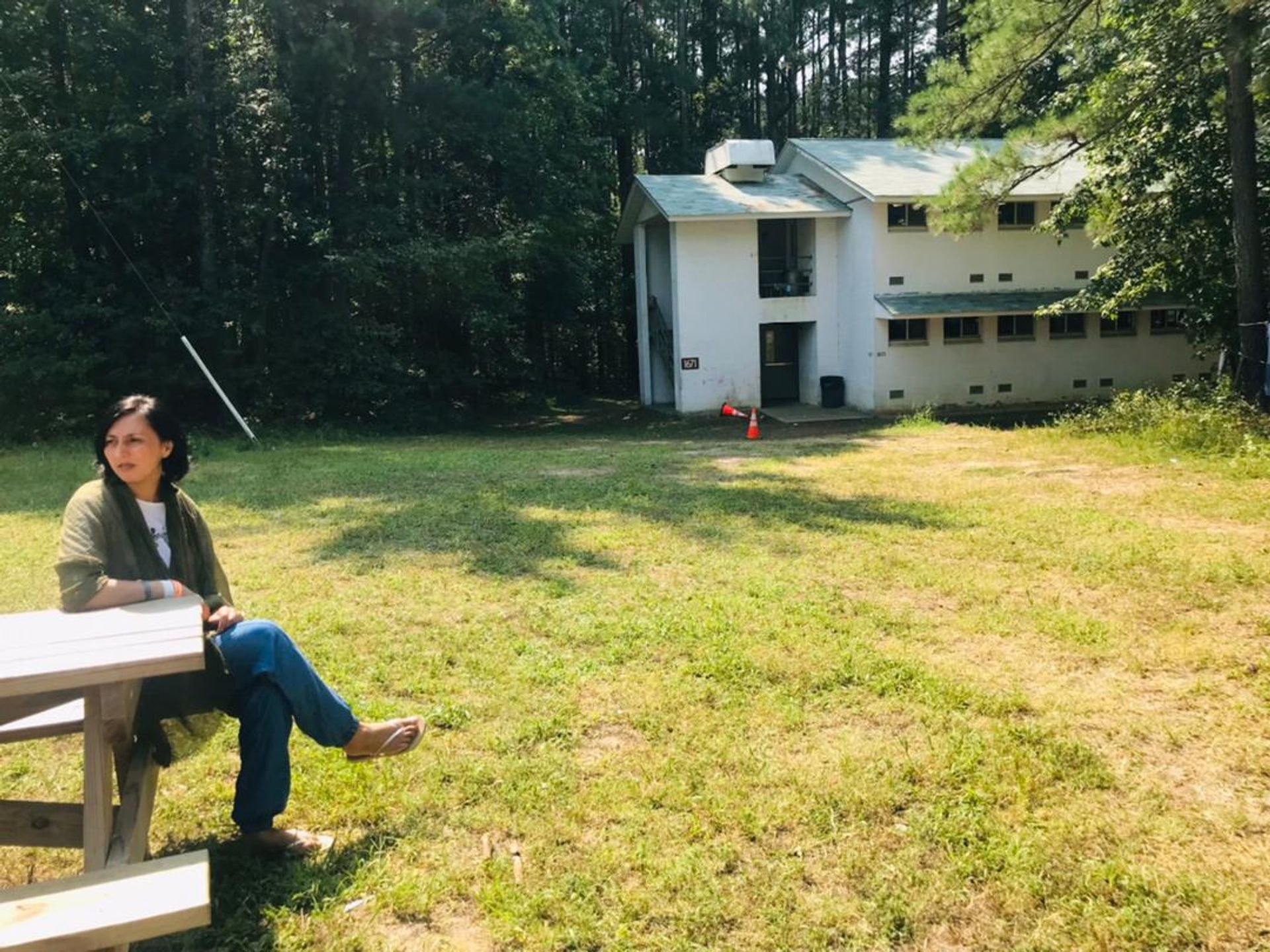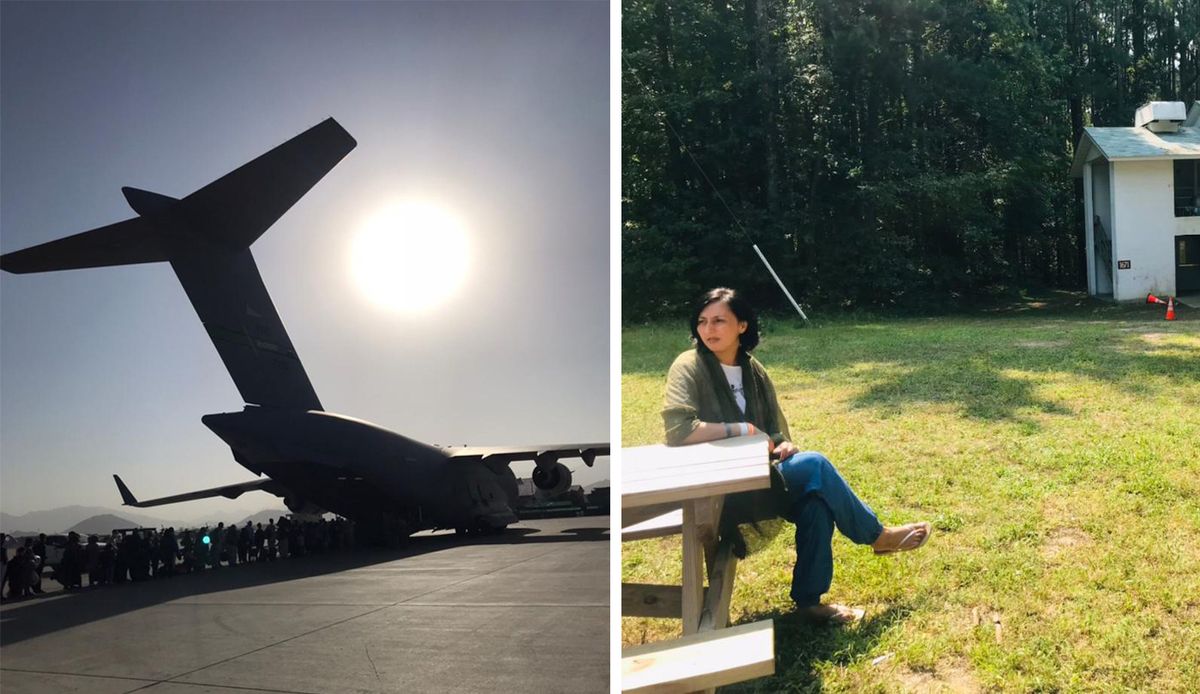This article is part of an ongoing series "Dispatches from Afghanistan" profiling Afghan artists and their experiences since the rise of the Taliban. Find all of the profiles so far here and a list of resources to help Afghan creatives here.
The small suitcase that Jahan Ara Rafi carried could only fit her bare essentials and left no room for any of her art, but it was all she was permitted to carry on the evacuation flight from Kabul. She choked up as she left a lifetime of work, her home and everything she knew on 26 August for a new safer life in the US.
Rafi, an Afghan contemporary artist, knew she was amongst the lucky few who were granted permission to board one of the military flights out of the country. But what she did not realise at the time was that her 4pm flight would be one of the last evacuation planes to leave Kabul. Less than two hours after her flight took off for Qatar, at approximately 5.50pm, a suicide bomber approached Kabul airport’s Abbey Gate and detonated a bomb, killing at least 170 Afghans and 13 US military service members. The attack would bring more or less a halt to the remaining evacuation plans, leaving countless endangered Afghans behind.
Upon landing in Doha Rafi learned of the incident through social media, leaving her distraught and helpless. But there was no time for grief, she had to board a flight to Germany, where she remained for four days, before being placed on another flight to reach a camp in the US.
“It was a horrible feeling, I had been there just two hours before the explosion. There were countless people waiting. I kept thinking what happened to all those people?” Rafi told The Art Newspaper from the US camp.

A horrific explosion rocked the airport less than two hours after Rafi's departure brought the majority of the evacuation efforts to a halt, leaving countless endangered Afghans behind. Photo: Jahan Ara Rafi
Rebuilding the arts in Afghanistan
During the 1990s, when Rafi was just a child, her family had fled to Pakistan to protect her against Taliban’s unforgiving ways and only returned to their home in 2002, after the group were ousted.
Rafi began her studies in arts at Kabul University in 2004 and dedicated her entire adult life to the arts and its development in Afghanistan, especially among women. In 2006, while she was still a student, the Centre for Contemporary Arts Afghanistan (CCAA) established the Women Art Center in Kabul, to encourage the participation of women in modern arts, and Rafi and a handful of other artists became its key members. They taught classes, held workshops and organised exhibitions to inspire the empowerment of artistic impressions in a society that had been deprived of the engagement of women and arts under the Taliban and during the previous wars.
“People were not familiar with contemporary arts in Afghanistan, it was new and extremely rare to see modern art exhibitions, so it was important to develop creativity in this field. The focus on women was because they didn’t have access to such centres and the aim was to help discover and build the foundations of talents,” said Rafi.
The centre, where Rafi worked until 2012, has been closed since the Taliban takeover and it is uncertain if and when it will open its doors again.
Over the years Rafi remained active in a number of other art groups that focused on developing the contemporary art scene in Afghanistan. She even opened an art gallery with a few other female artists in 2014 to expose more Afghans in her community to the arts. Unfortunately due to financial issues the gallery lasted a little over a year before closing down.
Through her art she worked to bring awareness to the plight of women in her society in the hopes of bringing change. Her art often portrays figures—which she says are reflections of herself—that are bald, with strong facial figures and long or bent necks. The long necks represent how women have to look further and work harder to reach their goals. The bends are symbols of the limitations imposed on them and the blurred facial features illustrate the silence at the injustices they routinely experience.

One of Jahan Ara Rafi's works Courtesy of the artist
As the Taliban gradually gained ground around the country she continued to share her work online and was vocal against their extreme ideologies. However, on 15 August when the militant group took over Kabul she immediately felt in danger and knew she had to be extremely careful so as not to be found. She took what precautions she could and removed some of her anti-Taliban social media posts, such as a poem she had written attacking the group’s attitude towards women just days earlier. Then, like so many other endangered artists, she was silent.
“There was just no way the Taliban would get along with my art. I am an artist who speaks of women’s rights and the main axis point of my work has been women,” said Rafi.
Seeking safety abroad
She and her family began the task of trying to find a way out of the country. Finally, on 26 August and with only a few hours of notice they were granted seats (through one of her family members) on an evacuation flight.
The escape and the displacement has been an emotional time for Rafi but she is also consumed by thoughts of the perilous conditions her fellow artists who are left behind face under the Taliban.
“The world has left the people of Afghanistan alone and they are just watching what is going on! Unfortunately the Taliban rule has no place for arts and artists, and they will never have a place for them. We need to find a way out for the artists who are still stuck,” she said.
Rafi says she hopes the international community will step in and act urgently to recognise that Afghan artists are in grave danger and help them.
“I want to ask the international art organisations to please work on this matter and collaborate with the endangered Afghan artists because the Taliban law has no respect for arts and they will never accept the artists,” said Rafi.
In early November, after two months of sharing every moment of her life with groups of people she did not know, Rafi was released from the US camp. She says she is planning on getting organised and doing whatever she can to help artists get out of Afghanistan and reach safety.
Heartbroken about leaving her lifetime of work behind, she hopes she can one day be reunited with her art, which is hidden in Kabul.

Jahan Ara Rafi at a camp in the US Courtesy of the artist
A poem written by Jahan Ara Rafi a few days before the Taliban takeover, which she later removed from her social media out of fear:
Let’s pack up our dreams,
Our dreams are too big,
They are not meant for this small world
And the small minded people here,
We have to throw our dreams out of the window
so they can fly up high,
Hey Talib, you violent man,
Who do you think you are
To try and teach me and the likes of me about hijab,
When you see me from far all you can think of are the beautiful virgins in heaven,
Hey Talib, you violent man
Open your ears and listen,
We are the beautiful heavenly women on earth,
And we have dreams for ourselves,
We live,
We study,
We fall in love,
We hold love dear,
Without fear, we breathe,
We dance and party,
The city’s streets will be filled with the sweet scent of our bodies…
This article is part of an ongoing series "Dispatches from Afghanistan" profiling Afghan artists and their experiences since the rise of the Taliban. Find all of the profiles so far here and a list of resources to help Afghan creatives here.


